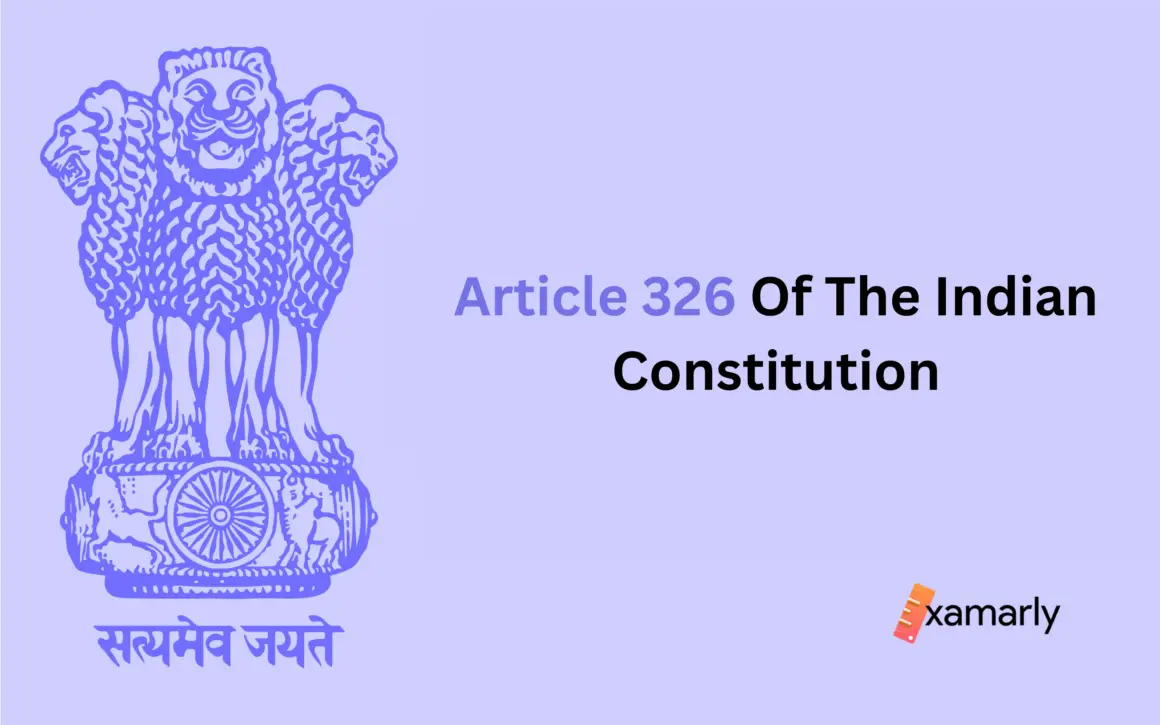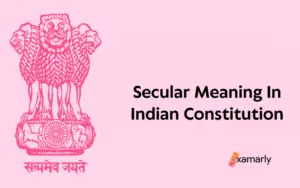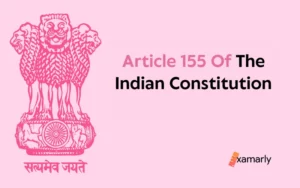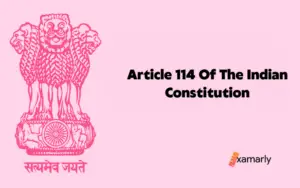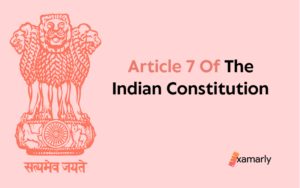Article 326 of the Indian Constitution of India is an article that describes the conduct of elections in the country. It lays down the principles of adult franchise, which means that all citizens above 18 years of age have the right to vote in the elections to the House of the People (Lok Sabha) and the Council of States (Rajya Sabha), as well as to the Legislative Assemblies of the states, without any discrimination on grounds of religion, race, caste or sex.
It also vests the superintendence, direction, and control of the preparation of the electoral rolls and conduct of all such elections to the Election Commission of India, an autonomous body set up to ensure fair and impartial conduct of elections.
This article plays an important role in the democratic setup of India, and its implementation helps ensure free and fair elections across the country, giving everyone an equal say in the representation of their governance.
Article 326 Of The Indian Constitution – In Detail
326. Elections to the House of the People and to the Legislative Assemblies of States to be on the basis of adult suffrage The elections to the House of the People and to the Legislative Assembly of every State shall be on the basis of adult suffrage; but is to say, every person who is a citizen of India and who is not less than twenty one years of age on such date as may be fixed in that behalf by or under any law made by the appropriate legislature and is not otherwise disqualified under this constitution or any law made by the appropriate Legislature on the ground of non residence, unsoundness of mind, crime or corrupt or illegal practice, shall be entitled to be registered as a voter at any such election
The clause in the Article 326 of the Indian Constitution lays down the principle of adult franchise for the conduct of elections in India. Adult franchise means that all citizens who are 18 years of age or older have the right to vote in elections to the House of the People (Lok Sabha) and the Legislative Assemblies of the states.
This means that all Indian citizens who are above the age of 18 years, regardless of their religion, race, caste, or sex, are eligible to participate in the electoral process and exercise their right to vote.
The article further specifies that the eligibility criteria for voter registration include the age of 21 years on the date fixed by the appropriate legislature and the person should not be disqualified under the constitution or any law made by the appropriate legislature, for non-residence, unsoundness of mind, crime, or corrupt or illegal practice.
This requirement of adult suffrage ensures that the citizens of India, who are mature enough to make informed decisions, get to exercise their right to vote and select their representatives. It lays a foundation for fair and free representation, as every adult citizen is given an equal say in the representation of their governance.
The provision of disqualification on certain grounds ensure that only eligible person is participating in the electoral process and it helps maintain the integrity of the electoral process.
Related – Article 390 Of The Indian Constitution
Summing Up
We can conclude from Article 326 of the Indian Constitution that elections to the House of the People (the lower house of the Indian parliament) and to the Legislative Assemblies of each state in India will be held on the basis of adult suffrage, meaning that all citizens of India who are at least 21 years of age and not otherwise disqualified (such as for non-residence, unsoundness of mind, crime, or corrupt or illegal practices) will be entitled to vote in such elections.
Some Relevant FAQs
Who is eligible to vote in India?
To be eligible to vote in India, a person must be a citizen of India and must be 18 years of age or older on the qualifying date (the date on which the voter’s age is determined).
How do I register to vote in India?
In order to register to vote in India, you must first ensure that you meet the eligibility criteria outlined above. Then, you can fill out a voter registration form (Form 6) and submit it to the Electoral Registration Officer (ERO) in your area.
Can NRIs vote in India?
Yes, Non-Resident Indians (NRIs) are eligible to vote in India as long as they meet the general eligibility criteria (i.e. they are Indian citizens and are 18 years of age or older on the qualifying date). NRIs must have a valid passport in order to be able to vote. They have to fill out Form 6A for registration as an overseas voter.
Can a person with a criminal record vote in India?
A person with a criminal record is not automatically disqualified from voting in India. However, if a person is serving a sentence for a criminal offence, they are not eligible to vote while they are in prison.
What documents are required to register to vote in India?
To register to vote in India, you will need to provide proof of your age, nationality, and residence. This can typically be done by submitting a copy of your birth certificate, passport, PAN card, driving license, or voter ID card, along with a copy of a utility bill or other document that proves your residence.
Is there any penalty for not voting?
There is no penalty for not voting in India, as voting is not mandatory in the country. However, not being registered to vote or not voting in an election can result in the voter’s name being removed from the electoral roll.
It’s important to note that the rules and regulations governing voting and voter registration can change over time, so it’s a good idea to check with the ECI or the ERO in your area for the most up-to-date information.


